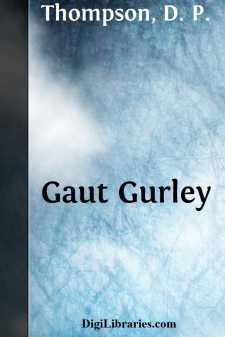Categories
- Antiques & Collectibles 13
- Architecture 36
- Art 48
- Bibles 22
- Biography & Autobiography 813
- Body, Mind & Spirit 142
- Business & Economics 28
- Children's Books 17
- Children's Fiction 14
- Computers 4
- Cooking 94
- Crafts & Hobbies 4
- Drama 346
- Education 46
- Family & Relationships 57
- Fiction 11829
- Games 19
- Gardening 17
- Health & Fitness 34
- History 1377
- House & Home 1
- Humor 147
- Juvenile Fiction 1873
- Juvenile Nonfiction 202
- Language Arts & Disciplines 88
- Law 16
- Literary Collections 686
- Literary Criticism 179
- Mathematics 13
- Medical 41
- Music 40
- Nature 179
- Non-Classifiable 1768
- Performing Arts 7
- Periodicals 1453
- Philosophy 64
- Photography 2
- Poetry 896
- Political Science 203
- Psychology 42
- Reference 154
- Religion 513
- Science 126
- Self-Help 84
- Social Science 81
- Sports & Recreation 34
- Study Aids 3
- Technology & Engineering 59
- Transportation 23
- Travel 463
- True Crime 29
D. P. Thompson
Daniel Pierce Thompson (1795–1868) was an American novelist and lawyer best known for his historical fiction set in New England. His most notable works include "The Green Mountain Boys" (1839), which dramatizes the role of Vermont's militia during the American Revolution, and "Locke Amsden" (1847), which explores the challenges of rural education. Thompson's writing often reflected his deep knowledge of Vermont history and its people, blending fact with fiction to create vivid narratives. In addition to his literary career, Thompson also held public office, including roles as a legislator and probate judge in Vermont.
Author's Books:
Sort by:
by:
D. P. Thompson
"A shout as of waters—a long-uttered cry: Hark! hark! how it leaps from the earth to the sky! From the sky to the earth, from the earth to the sea It is grandly reechoed, We are free, we are free!" Every thing, the next morning, seemed as quiet and peaceful in the village, as if nothing unusual had occurred there. The commotion of the preceding night appeared to have wholly...
more...
by:
D. P. Thompson
CHAPTER I. "God made the country and man made the town." So wrote the charming Cowper, giving us to understand, by the drift of the context, that he intended the remark as having a moral as well as a physical application; since, as he there intimates, in "gain-devoted cities," whither naturally flow "the dregs and feculence of every land," and where "foul example in most...
more...



